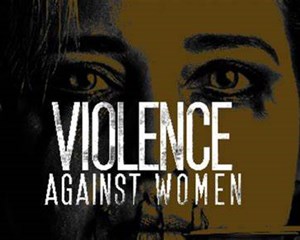Far-right parties do not all hold the levers of power, but they stalk its corridors, releasing their ugly permissions into the mental and social atmosphere. "We're only saying what everyone is thinking" is the common justification and refrain. They wrap themselves in the mantle of redemption, as if they were saving the world from burning injustice (righteousness raised to the pitch of frenzy is the particular skill of the far right). "Hate can exist without any particular individuals," comments the narrator of Edouard Louis's bestselling 2016 novel History of Violence, which narrates the story of his rape after a casual encounter on the Paris city streets. "All it needs is a place where it can come back to life."
極右政黨并非都掌握著權力的杠桿,但他們卻在走廊上徘徊,把他們丑陋的權限釋放到精神和社會氛圍中。“我們只是說出了每個人的想法”是常見的理由并被不斷重復。他們用救贖的外衣包裹自己,就好像他們在拯救這個世界,使之免于飽受不公之苦(把正義提升到瘋狂的高度,是極右勢力的特殊技能)。“仇恨可以在沒有任何特定個體的情況下存在,”愛德華·路易斯2016年最暢銷的小說《暴力史》的敘述者這樣評論道。這本書講述了他在巴黎街頭偶遇后被強奸的故事。“它需要的只是一個能讓它起死回生的地方。”

It is a paradox of human subjectivity that knowing you are capable of violence – recognising it as your problem, instead of blithely assigning it to someone else (of another race, class, nation or sex) – reduces the chances of making it happen. The idea of crushing violence – stamping it out or eradicating it from the Earth – simply increases the quotient of violence we have to face. We have seen this before, at the centre of 20th-century Europe, in the belief that the first world war would be the war to end all wars, a delusion that allowed that same war and its aftermath to carry on silently laying the groundwork for the next.
這是人類主觀性的一個悖論:知道你有使用暴力的能力——承認它是你的問題,而不是輕松地把它分配給別人(另一個種族、階級、國家或性別)——降低了暴力發(fā)生的機會。粉碎暴力的想法——將其鏟除或從地球上根除它——只會增加我們不得不面對的暴力的程度。在20世紀的歐洲中心我們曾見過這種情況,相信第一次世界大戰(zhàn)將是終結所有戰(zhàn)爭的戰(zhàn)爭,這種錯覺讓那場戰(zhàn)爭及其后果默默地繼續(xù)下去,為下一次戰(zhàn)爭奠定了基礎。
We are all subjects of violence, not least because we are embedded in a violent social world. There is always a point in any ethical position or turn – the struggle against injustice, the fight for a better, less violent order – where it starts and stutters, trips and breaks, before setting out on its path once more. At the beginning of The Human Condition, Hannah Arendt writes: "What I propose, therefore, is very simple: it is nothing more than to think about what we are doing."
我們都是暴力的受害者,尤其是因為我們生活在一個暴力的社會世界。在任何道德立場或轉向中總會有這樣一個點——與不公正作斗爭,為更好、更少暴力的秩序而斗爭——在再次踏上旅程之前,它會開始、結巴、絆倒、休息。漢娜·阿倫特在《人類境況》一書的開頭寫道:“因此,我的建議非常簡單:無非就是思考一下我們正在做什么。”
If there is one thing of which writing about violence has convinced me, it is that if we do not make time for thought – which must include the equivocations of our inner lives – we will do nothing to end violence in the world, while we will surely be doing violence to ourselves.
如果有一件關于暴力的寫作讓我信服的話,那就是如果我們不騰出時間來思考——這肯定包括我們內心生活的含糊其辭——我們不會采取任何行動來結束世界上的暴力,而我們肯定會對自己施暴。












